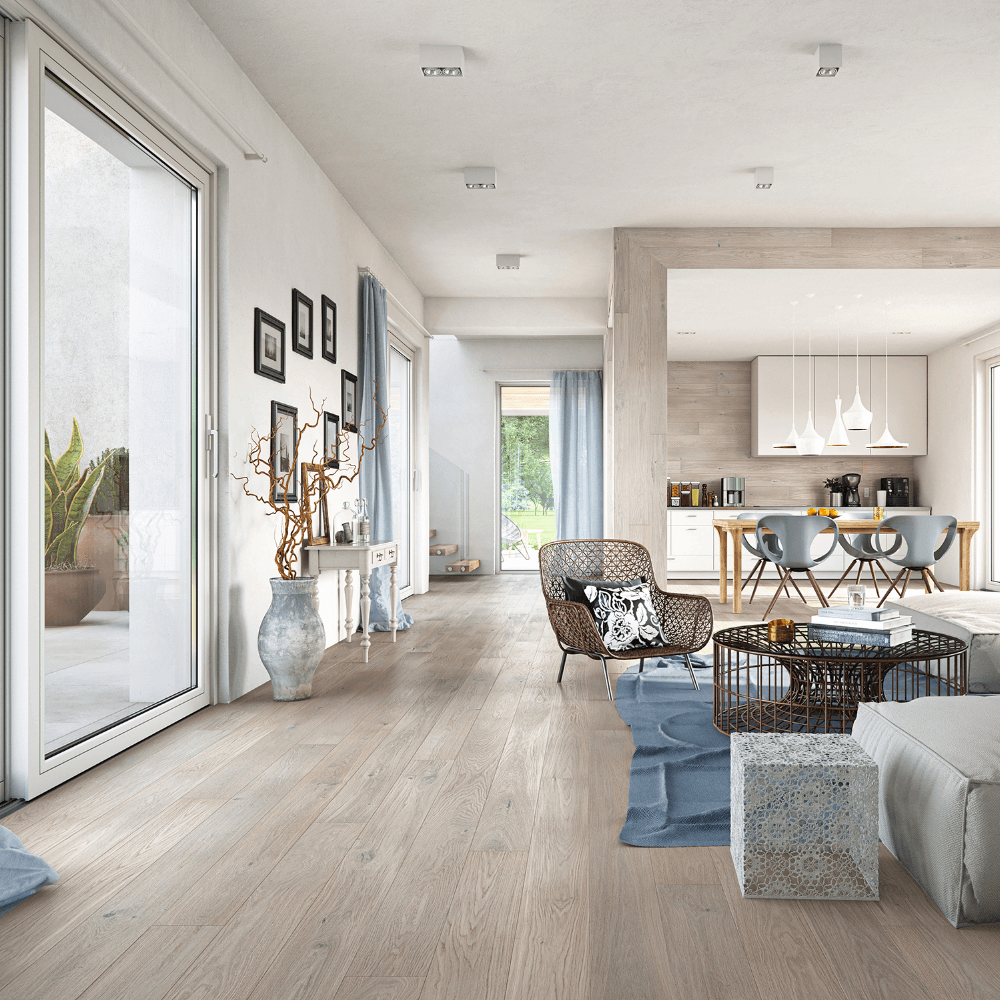Best Flooring For Hallways
Hallway Flooring
When considering the flooring for your hallway, many factors come into play. It will be one of the first, if not the first, rooms people see when they enter your home. You want it to set an example. First impressions matter, after all. Whatever floor you select, it must be hard wearing and durable enough to stand up to high levels of foot traffic, as every occupant of the house and any guests will be passing through this room on a daily basis. The ease of maintaining the floor should also be another consideration. As people will be entering with their shoes or socks in all kinds of weather conditions, the floor will eventually get dirty. It should be easy to clean, using no water and only damp cloths or other flooring friendly cleaning products.
Herringbone Parquet Flooring
What Is The Best Flooring For Hallways?
Hard surface flooring is an excellent choice for hallways. Thankfully, a hallway is the type of room where you can be flexible with your flooring choices, as there is no real danger of major water damage or excessive environmental fluctuation. As long as the floor can withstand foot traffic and be easily cleaned, it will be a good fit for a hallway. Many hard surface floors come in a wide range of colors and styles to match your choices.
Real wood flooring is a fantastic choice for a hallway. Either engineered or solid wood. Engineered is more common on the market nowadays because of its versatility, it is an eco-friendly product, doesn’t move around as much, and it looks indistinguishable from a solid wood floor once laid. With a real wood engineered floor, it will provide warmth underfoot, as well as retaining heat if you have underfloor heating.
With real wood flooring being 94-99% recyclable, it is the best flooring choice for the eco-conscious consumer!
You could also opt in for timeless parquet flooring, giving your home that high-end, luxurious feel. Patterned flooring can come in herringbone and chevron patterns, either as real engineered hardwood or in vinyl (more on this later). Patterned flooring doesn’t provide any other benefits apart from aesthetics.
Grey Engineered Wood Flooring
A more budget friendly option would be laminate flooring. Laminate is man made to look and emulate the feel of real wood. Higher quality laminates will look almost identical to real wood to the untrained eye once laid, and are excellent for those on a budget, or those with busier households with children and pets, where fear of the floor becoming damaged or scratched is prevalent.
The next option would be vinyl floors. Now luxury vinyl flooring (LVT) is usually sold as a fully waterproof flooring solution for kitchens or bathrooms, but there is no reason why vinyl flooring couldn’t go in a hallway either. Whether you want the additional protection from spillage, or if you simply want the floor to match across any bathrooms, kitchens, or utility rooms. Vinyl flooring would be a great choice for a hallway because it is hard wearing, easy to maintain, easy to clean, and very durable! Like laminate flooring, luxury vinyl floors are made to mimic the look of real wood, tiles, or stone. They use ultra high resolution images and intelligent manufacture to create an almost identical look and feel to authentic wood flooring.
Rigid Core Vinyl Flooring from our Next Step Richline 31 Range
A quick note on rigid core vinyl flooring: Traditional LVT and Rigid Core (also known as SPC, as shown above) are different products. SPC is an alternative to LVT Flooring, but both are fully waterproof and have the same merits. Read more about SPC vinyl flooring on our blog post here.
Summary
Flooring that is suitable for hallways includes:
Engineered real wood (or solid wood)
Laminate Flooring
Parquet Flooring
Vinyl Flooring



